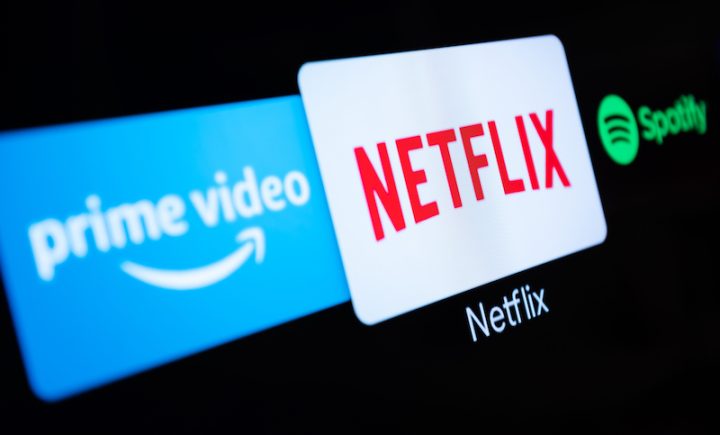There is much concern about the frightening advance of AI. In Los Angeles, members of the Writers Guild of America which represents 11,000 writers have entered their fourth week of strikes. They are demanding, among other things, higher pay, and crucially, that the studios guarantee they won’t slice into writers royalty payments by crediting AI tools such as ChatGPT on scripts.
There is indeed a real threat of screenwriters’ jobs becoming redundant as AI advances. Yet the streaming services who employ writers are far more likely to self-sabotage long before AI becomes sophisticated enough to produce television and film scripts worthy of being made.
If you don’t really care about what you are creating, you may as well get a robot to do it for you
Look at a lot of the ‘content’ that the studios have pumped out in recent years.
Amazon’s Rings of Power, which is estimated to have cost the studio at least $1 billion (£810 million) and had only a 37 per cent domestic completion rate (customers who watched the entire series). Or Netflix’s Sense8, which cost $216 million (£175 million), and was watched by almost nobody. The streaming services are spending staggering amounts of money generating dire results. No wonder some executives are considering outsourcing the creative side to the machines.
Suddenly, the early noughties seem like the golden era of television. Shows such as The Sopranos, The Wire and Mad Men proved to cultural snobs for the first time that a television series could be as cinematically rich, complex and expertly crafted as a film. Netflix, Amazon, Hulu and Apple TV were born largely off the back of that ‘box-set boom’. Yet increasingly these companies produce only the sort of dross that may as well have been written, directed, acted and produced by an algorithm. Anyone who has watched Netflix’s Sex/Life will know what I mean.
There is still great television being made. Take White Lotus and Succession, both revered for their excellence, both released in weekly instalments, both produced by HBO and among the most popular and highly acclaimed shows on television today. Of course the fact they’re wildly popular is because of the way they’re written and performed. But their success demonstrates that there is a demand for a return to the model of watching a show and having a week to discuss it, to percolate in viewers minds so that they yearn for the next episode. When production companies concentrate and prioritise quality over quantity, a whole season doesn’t need to be dumped in a day for people to watch hungover in one sitting as background noise to accompany their endless scrolling on their phones.
For now, Netflix remains the king of streaming services but the insatiable need to stay at the top and stay relevant has seen it produce more and more crap. Yes, it is responsible for The Crown and Stranger Things, and other huge successes, but those two shows are coming to an end and there is nothing new that comes close. Netflix’s latest offering, a film about Cleopatra, has been universally reviled and received a magnificent score of 1 per cent on Rotten Tomatoes.
Does the lack of quality actually matter to these platforms? Shows such as Bridgerton or Emily in Paris still generate a significant amount of attention and engagement. The internet lights up in memes and commentators question how could a show so terrible be created – surely our gazillionaire content overlords know better! But what the overlords actually think is that it doesn’t really matter if people hate the shows – they’re still watching or at least pressing play.
The crazed competition between Netflix, Amazon and Apple TV for half-distracted eyeballs means these companies prioritise mega deals to secure star writers and never mind whether they deliver.
Phoebe Waller Bridge, for instance, signed a deal with Amazon for £48 million in 2019. Despite her three year deal producing nothing, Amazon renewed her contract in 2023. Paying Waller Bridge £16 million a year to not produce anything was apparently less costly to Amazon than having a rival streaming service employ her. I’m no Jeff Bezos, but you don’t have to be to realise that is not a sustainable business model.
One screenwriter who wrote a nine-episode adaptation of a popular book for Amazon told me how, after reading the book, he informed the studio it would be better suited to five episodes but they weren’t interested. ‘They had allocated the budget for nine episodes so nine episodes it was’. The show did moderately well but was criticised for – you guessed it – being drawn out. As ever, a streaming service valued quantity over quality.
A relevant point is that Amazon and Apple’s origins are as staggeringly successful retail outlets who ventured into production. There was no guarantee that throwing mountains of cash at talent would be a sure way of getting a hit. But they deemed it worth a shot.
In contrast, HBO, the oldest subscription television service, has had decades to build up an impressive collection of some of the most culturally important television shows of all time. Their success was built around making great television. The same can’t be said of Netflix, whose biggest achievement was content delivery rather than production. Amazon or Apple, unlike HBO, have gargantuan other revenue streams to sustain their commissioning of subpar television. And if you don’t really care about what you are creating, you may as well get a robot to do it for you.






Comments